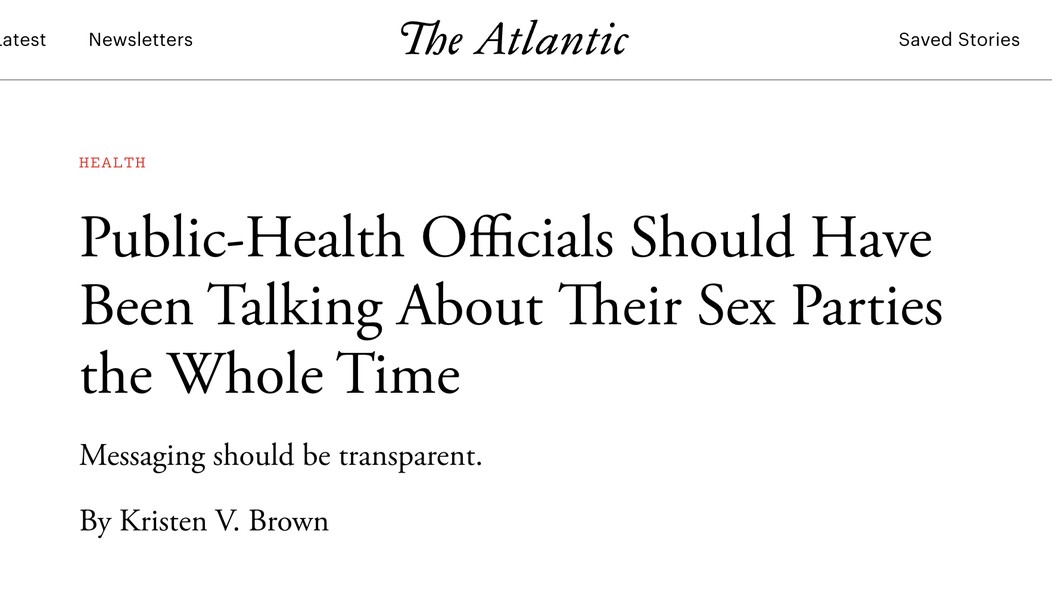New York City had some of the most restrictive COVID-related policies in the country.
Schools closed. Churches closed. Parks closed. Restaurants closed—mask mandates, including two years of masking for children going to school. Travel restrictions were imposed. Gatherings limited. Even the New Year's Eve Times Square celebration was canceled.
Dining out, surprise raid.
— 𝐉𝐎𝐇𝐍 𝐖𝐈𝐂𝐊 𝕏ʰⁱᵗᵐᵃⁿ 🔫 (@imUrB00gieman) January 13, 2022
NYPD and The New Manhattan DA are still enforcing vaccine mandates, the only laws that will still land you in jail in NYC. #Insanity pic.twitter.com/aY2uMZV1i6
The city looked like a dystopian hellscape at times.
Multiple suspects have been arrested and taken into custody after sitting down at an Applebee’s in Queens, New York, without COVID vaccine passes in violation of the city’s mandate.pic.twitter.com/HE9mYX3D34
— Michael P Senger (@michaelpsenger) December 16, 2021
Through it all, New York City COVID Czar Dr, Jay Varma was leading the charge to keep things locked down and to bully people into getting vaccinated against their will.
BREAKING: Former NYC Covid Czar Held Secret Drug-Fueled Sex Parties During Global Pandemic; Says New Yorkers Would Have Been “Pissed” If They Found Out Because He Was Running Entire Covid Response For City
— Steven Crowder (@scrowder) September 19, 2024
Dr. Jay Varma, Former Senior Advisor for Public Health, NYC Mayor’s… pic.twitter.com/YrgniDUdFc
Varma has famously been outed for his own behavior during his time as dictator-in-chief of the city. As he was leading the charge to punish people for violating his mandates he was arranging and attending orgies.
An #NY mother speaks out today about her arrest for ‘failure to wear a #facemask.’ Last week she was pushed to the ground by police after tensions rose over not putting on her mask in a subway station. @Attyrubenstein says he’s coming after the city and the #NYPD for damages. pic.twitter.com/dgaVCrg2Kp
— Kevin R Hogan (@KRHogan_NTD) May 19, 2020
These 3 New Yorkers were violently arrested for not social distancing — and many are calling out the apparent double standard https://t.co/lDPDeZ2Eaq pic.twitter.com/739EJMvRqr
— NowThis Impact (@nowthisimpact) May 4, 2020
Hundreds of supporters gathered outside a Staten Island bar after its manager was arrested and it was shutdown for repeatedly violating New York's coronavirus restrictions. Many protesters didn’t have masks on https://t.co/uUMyYqYR9O pic.twitter.com/zozgMe1U9h
— CBS News (@CBSNews) December 3, 2020
I'm not going to waste a lot of time explaining why Varma is a terrible person. If it isn't obvious to you then there is no point arguing about it.
Rather, I want to talk about this appalling argument in The Atlantic, which argues that Varma should have been open about breaking pandemic policies he was imposing on others, including siccing the police on them.
New York City’s former COVID czar organized a pair of sex parties during peak pandemic social isolation. Perhaps he should have said so at the time, writes @kristenvbrown: https://t.co/WXb8bTzr2M
— The Atlantic (@TheAtlantic) September 22, 2024
This is the perfect article, in a way. It captures the way that our moral betters think about themselves and about the people they want to rule.
Sure, Varma used the police to jail people who violated COVID policies, but his excuse for organizing drug-fueled orgies was that he had to blow off steam. He was stressed out, you see, by having to impose tyranny on others. Who doesn't need to blow off steam?
My guess is that few of my readers organized drug-fueled orgies during the pandemic or any other time, and if they had in New York City during COVID, they would have been carted off to jail if discovered. Last I checked, MDMA (Extasy) is illegal and rarely recommended by public health officials.
Drug-fueled orgies for me, but not for thee.
What makes this article perfect is the casual way in which all this hypocrisy and lawbreaking is portrayed as normal.
Social-science research tells us that public-health messaging wins trust most effectively when it leads with empathy—when leaders show that they understand how people feel and what they want, rather than barraging them with rules and facts. Clearly Varma struggled in the way that many others did as he tried to navigate the crushing isolation of the pandemic. In preparation for the holidays, his family was faced with tough, familiar choices, which resulted in his being separated from his loved ones.
The end result may seem hypocritical, but it’s also relatable. (Well, maybe not entirely relatable, but in principle.) “We know that transparency can increase public trust in public health and medical experts,” Matt Motta, who studies vaccine hesitancy at the Boston University School of Public Health, told me. What if Varma had been forthright with the public from the start, even on the subject of his sex parties? Perhaps he could have shown that he understood the need to get together with your friends as safely as you can, in whatever ways make you happy. Even now, his description of that moment strikes a chord. “It wasn’t so much sex,” he told the woman who was trying to embarrass him. “It was just like, I need to get this energy out of me.” So did the rest of us.
Call me crazy, but if a public health official is imposing policies on others that he finds impossible to follow, I would argue that those policies are by definition bad ones.
Public health is for the public, which means that it has to be tailored to the realities of human life. We could, perhaps, avoid viral diseases by wearing spacesuits all the time, but no public health strategy worth the name would recommend this. It's impossible to live a life worth living encased in bubbles.
They arrested this man for not having a damn mask. Zero fucking respect for police like these two 👇🏼🖕🏼 pic.twitter.com/0oqQFI6Axs
— Art TakingBack 🇺🇸 (@ArtValley818_) May 2, 2021
Policies of any kind are based on balancing competing goods; car accidents cause tens of thousands of deaths a year, but we use cars because the benefits of mobility outweigh the costs of car accidents. These sorts of tradeoffs are impossible to avoid, and during COVID all the balancing judgments were wrong--horribly wrong.
Folks, This is @NYGovCuomo’s New York!!
— 🇺🇸 Pismo 🇺🇸 (@Pismo_B) May 14, 2020
😡😡😡Mom placed in handcuffs over not fully wearing her mask in Brooklyn!
A blatant violation of this woman’s civil rights!!https://t.co/kHvqbYBl7R
Yet we read in The Atlantic not an article about this lesson but about how we all need drug-fueled orgies or something. It's relatable.
Perhaps for members of the New York elite, but the Hasidic Jews who were harassed mercilessly by the New York City government for wanting to go to shul didn't demand the right to have orgies but simply to worship. People who wanted a night out at a restaurant were manhandled and arrested by the police at the direction of Varma.
Sorry, I don't find Varma's orgies relatable. I find them disgusting in more ways than one.








Join the conversation as a VIP Member